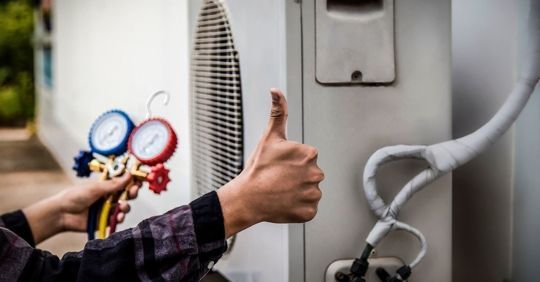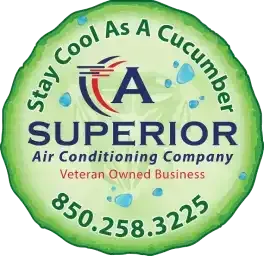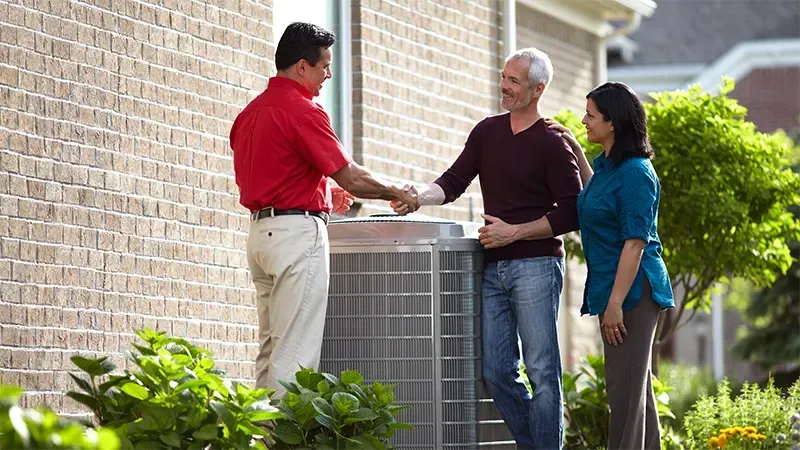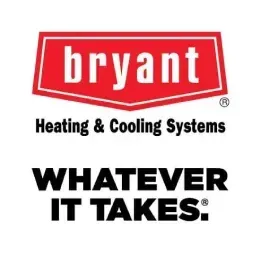The Importance of Regular HVAC Maintenance: What You Need to Know

Understanding HVAC Systems
Components of an HVAC System
An HVAC system is a complex network of components designed to regulate your home's indoor climate. The primary components include the furnace, air conditioner, heat pump, ductwork, and thermostat. The furnace is responsible for heating the air while the air conditioner cools it. The heat pump can heat and cool, making it versatile. Ductwork distributes the conditioned air throughout your home, and the thermostat allows you to control the temperature. Each component plays a crucial role in maintaining a comfortable indoor environment. When they work together seamlessly, you enjoy optimal indoor air quality and temperature control.
Understanding how these components interact is essential for effective HVAC maintenance. For instance, if your ductwork is clogged or leaking, it can significantly reduce the efficiency of your furnace or air conditioner. Similarly, a malfunctioning thermostat can lead to inconsistent temperatures and increased energy consumption. By familiarizing yourself with the key components of your HVAC system, you can better appreciate the importance of regular maintenance and quickly identify when something is amiss.
Common HVAC Issues
Like any other mechanical system, HVAC systems are prone to various issues affecting performance and efficiency. Common problems include refrigerant leaks, clogged filters, and thermostat malfunctions. Refrigerant leaks can cause your air conditioner to lose its cooling capacity, leading to higher energy bills and reduced comfort. Clogged filters restrict airflow, forcing your system to work harder and consume more energy. Thermostat malfunctions can result in inaccurate temperature readings, causing your system to cycle on and off more frequently than necessary.
These issues compromise your HVAC system's performance and energy efficiency. When your system is not operating at peak efficiency, it consumes more energy, leading to higher utility bills. Moreover, unresolved issues can cause additional wear and tear on your system, potentially leading to more significant and costly repairs down the line. Regular maintenance can help identify and address these problems early, ensuring your system runs smoothly and efficiently.
Signs Your HVAC System Needs Maintenance
Recognizing the signs that your HVAC system needs maintenance can save you from costly repairs and ensure your home remains comfortable year-round. Unusual noises, such as banging, rattling, or hissing, often indicate something wrong with your system. Inconsistent temperatures throughout your home can suggest issues with your ductwork or thermostat. Additionally, a sudden increase in energy bills may signal that your system is working harder than it should be, likely due to a maintenance issue.
Early detection of these signs is crucial for preventing more severe problems. For example, addressing a refrigerant leak promptly can prevent damage to your compressor, which is a much more expensive component to replace. Similarly, changing a clogged filter can improve airflow and reduce strain on your system, enhancing its efficiency and lifespan. Regular maintenance checks can help you catch these issues early, ensuring your HVAC system remains in good working order.
Benefits of Regular HVAC Maintenance
Improved Energy Efficiency
One of the most significant benefits of regular HVAC maintenance is improved energy efficiency. When well-maintained, your system operates more efficiently, consuming less energy to heat or cool your home. This translates to lower utility bills and reduced environmental impact. Regular maintenance tasks, such as cleaning or replacing filters, checking refrigerant levels, and inspecting electrical connections, can significantly enhance your system's efficiency. Energy efficiency ratings, such as SEER (Seasonal Energy Efficiency Ratio) for air conditioners and AFUE (Annual Fuel Utilization Efficiency) for furnaces, indicate how efficiently your system uses energy.
Higher ratings mean better efficiency. Regular upkeep is critical for maintaining high ratings. Improved energy efficiency also means your system doesn't have to work as hard to maintain your desired indoor temperature. This reduces wear and tear on the components, leading to fewer breakdowns and a longer lifespan for your system. In the long run, the energy savings from regular maintenance can offset the maintenance cost, making it a wise investment for any homeowner.
Extended Lifespan of Equipment
Regular HVAC maintenance, routine checks, and timely repairs play a crucial role in extending the lifespan of your equipment. When components are cleaned, lubricated, and inspected regularly, they are less likely to fail prematurely. For example, a well-maintained furnace can last up to 20 years, while a neglected one might only last 10-15 years. Similarly, an air conditioner that receives regular maintenance can serve you well for 15-20 years, compared to a poorly maintained unit that might need replacement much sooner.
The cost of replacing an HVAC system can be substantial, so extending the lifespan of your current equipment through regular maintenance is a cost-effective strategy. Regular maintenance not only helps you avoid the high costs associated with emergency repairs and replacements but also ensures that your system operates efficiently throughout its extended lifespan. This means you get the most out of your investment, enjoying reliable performance and comfort for many years.
Enhanced Indoor Air Quality
Maintaining good indoor air quality is essential for the health and comfort of your household. Regular HVAC maintenance can significantly enhance indoor air quality by ensuring that filters and ducts are clean and free from dust, allergens, and other contaminants. Dirty filters and ducts can circulate pollutants throughout your home, leading to respiratory issues, allergies, and other health problems. By regularly cleaning or replacing filters and having your ducts professionally cleaned, you can reduce the presence of these harmful particles in your indoor air.
Improved indoor air quality also means a more comfortable living environment. Clean air is easier to breathe and can reduce symptoms of asthma and allergies. Additionally, a well-maintained HVAC system can better regulate humidity levels, preventing issues like mold growth and dry air, which can further impact your health. Regular maintenance ensures that your system not only keeps your home at a comfortable temperature but also provides clean, healthy air for you and your family.
Essential HVAC Maintenance Tasks
Seasonal Tune-Ups
Seasonal tune-ups are a vital part of maintaining your HVAC system's performance and efficiency. Scheduling professional inspections before peak seasons, such as summer and winter, ensures that your system is ready to handle the increased demand. During a seasonal tune-up, a certified technician will perform a comprehensive checklist of tasks, including checking refrigerant levels, inspecting electrical connections, cleaning coils, and testing the thermostat. These tasks help identify potential issues before they become major problems, ensuring your system runs smoothly and efficiently.
Seasonal tune-ups also provide an opportunity to make any necessary adjustments or repairs before the extreme weather hits. For example, ensuring your air conditioner is in top shape before the summer heat can prevent unexpected breakdowns and keep your home cool and comfortable. Similarly, a pre-winter furnace inspection can ensure your heating system is ready to keep you warm during the colder months. By investing in regular seasonal tune-ups, you can enjoy peace of mind knowing your HVAC system is prepared for whatever the weather brings.
DIY Maintenance Tips
While professional maintenance is essential, there are also simple tasks homeowners can perform to keep their HVAC systems in good condition. One of the most important DIY maintenance tasks is changing the air filters regularly. Dirty filters can restrict airflow, reduce efficiency, and lead to poor indoor air quality. Depending on your system and usage, filters should be changed every 1-3 months. Another easy task is cleaning the vents and registers to ensure they are free from dust and debris, which can obstruct airflow and reduce system efficiency.
Safety precautions are crucial when performing DIY maintenance. Always turn off the power to your HVAC system before attempting any maintenance tasks to avoid electrical hazards. Additionally, be cautious when handling components, as some parts may be sharp or hot. If you're unsure about any aspect of DIY maintenance, it's best to consult a professional to avoid causing damage to your system or risking your safety. By performing these simple tasks regularly, you can help maintain your system's efficiency and prolong its lifespan.
Professional Services
While DIY maintenance can help keep your system in good shape, certain tasks are best left to the professionals. Certified HVAC technicians have the training and expertise to perform more complex maintenance tasks, such as
duct cleaning, system diagnostics, and
refrigerant recharging. Professional services ensure that your system is thoroughly inspected and any issues are addressed promptly. For example,
professional duct cleaning can remove accumulated dust and debris, improving airflow and indoor air quality.
Hiring certified technicians for complex tasks also provides peace of mind, knowing that the job is done correctly and safely. Professionals have the necessary tools and knowledge to identify and fix issues that may not be apparent to the average homeowner. Additionally, many HVAC service providers offer
maintenance plans that include regular inspections and tune-ups, making it easy to keep your system in top condition. By investing in professional services, you can ensure your HVAC system operates efficiently and reliably.
Cost Considerations
Cost of Regular Maintenance vs. Repairs
When considering the cost of HVAC maintenance, it's essential to compare the expenses associated with routine maintenance versus emergency repairs. Regular maintenance typically involves a modest investment, with costs varying depending on the service provider and the specific tasks performed. On the other hand, emergency repairs can be significantly more expensive, especially if major components need to be replaced. For example, replacing a compressor or heat exchanger can cost several thousand dollars, whereas regular maintenance can prevent these issues and save you money in the long run.
The long-term financial benefits of investing in regular maintenance are substantial. By keeping your system in good working order, you can avoid costly breakdowns and extend the lifespan of your equipment. Additionally, a well-maintained system operates more efficiently, reducing your energy bills. Over time, the savings from lower utility bills and fewer repairs can offset the cost of regular maintenance, making it a wise investment for any homeowner.
Maintenance Plans and Warranties
Many HVAC service providers offer maintenance plans that can help you manage the cost of regular upkeep. These plans typically include scheduled inspections and tune-ups, as well as discounts on repairs and priority service. Maintenance plans can provide peace of mind, knowing that your system is regularly checked and maintained by professionals. Additionally, some plans offer flexible payment options, making it easier to budget for maintenance expenses.
Warranties can also play a significant role in covering maintenance tasks and repairs. Many HVAC systems come with manufacturer warranties that cover specific components for a certain period. It's essential to understand the terms of your warranty and ensure that regular maintenance is performed to keep the warranty valid. Some warranties may require proof of professional maintenance to cover repairs, so investing in regular upkeep can protect your investment and save you money on potential repairs.
Energy Savings and Rebates
Regular HVAC maintenance can lead to significant energy savings, reducing your utility bills and environmental impact. A well-maintained system operates more efficiently, consuming less energy to heat or cool your home. This not only lowers your monthly energy costs but also reduces your carbon footprint. Additionally, many utility companies and government programs offer rebates and incentives for energy-efficient upgrades and maintenance. These programs can help offset the cost of maintenance and make it more affordable to keep your system in top condition.
Taking advantage of energy savings and rebates can provide substantial financial benefits. For example, upgrading to a high-efficiency air conditioner or furnace can qualify you for rebates that reduce the upfront cost of the equipment. Similarly, regular maintenance can help you maintain the efficiency of your system, ensuring you continue to benefit from lower energy bills. By staying informed about available rebates and incentives, you can maximize your savings and make the most of your investment in HVAC maintenance.
Choosing the Right HVAC Maintenance Provider
Qualities of a Reliable HVAC Technician
Selecting the right HVAC maintenance provider is crucial for ensuring quality service and reliable performance. Key attributes to look for in a technician include certification, experience, and customer reviews. Certified technicians have undergone rigorous training and testing to ensure they have the skills and knowledge to perform maintenance and repairs correctly. Experience is also essential, as seasoned technicians are more likely to identify and address issues efficiently. Customer reviews can provide valuable insights into the technician's reliability, professionalism, and quality of work.
It's also important to choose a licensed and insured provider. Licensing ensures that the technician meets the necessary regulatory requirements and adheres to industry standards. Insurance protects you from liability in case of accidents or damage during the maintenance process. By selecting a qualified, experienced, and reputable technician, you can ensure your HVAC system receives the best possible care.
Questions to Ask Your HVAC Provider
When selecting an HVAC maintenance provider, asking the right questions can help you evaluate their suitability for your needs.
Essential questions to ask include:
- What certifications and licenses do you hold?
- How many years of experience do you have in HVAC maintenance?
- Can you provide references or customer reviews?
- What services are included in your maintenance plans?
- Do you offer any guarantees or warranties on your work?
Evaluating the provider's responses to these questions can help you determine their expertise, reliability, and commitment to quality service. For example, a provider with extensive experience and positive customer reviews is likely to deliver better results. Additionally, understanding the scope of their maintenance plans and any guarantees they offer can give you confidence in their ability to meet your needs.
Reading and Understanding Service Contracts
Service contracts are an essential part of hiring an HVAC maintenance provider, as they outline the scope of work, duration, and terms of the agreement. Key elements to look for in a service contract include the specific tasks to be performed, the frequency of maintenance visits, and any additional services or discounts included. It's also important to understand the duration of the contract and any cancellation policies.
Negotiating favorable terms and understanding the fine print can help you get the most value from your service contract. For example, you may be able to negotiate a discount for signing a long-term contract or bundling multiple services. Additionally, ensure that the contract clearly outlines any guarantees or warranties on the work performed. By carefully reviewing and understanding the service contract, you can ensure you receive the best possible service and protect your investment in HVAC maintenance.
Connect with A Superior Air Conditioning Company Today!
Regular HVAC maintenance is essential for ensuring the efficiency, reliability, and longevity of your system. By investing in routine upkeep, you can enjoy lower energy bills, improved indoor air quality, and a comfortable living environment. If you're in Panama City Beach, FL, and need professional HVAC maintenance services, look no further than A
Superior Air Conditioning Company. Our certified technicians are dedicated to providing top-quality service and ensuring your system operates at its best.
Contact us today at (850) 749-5646 or reach out online to schedule your maintenance appointment and experience the benefits of a well-maintained HVAC system.




